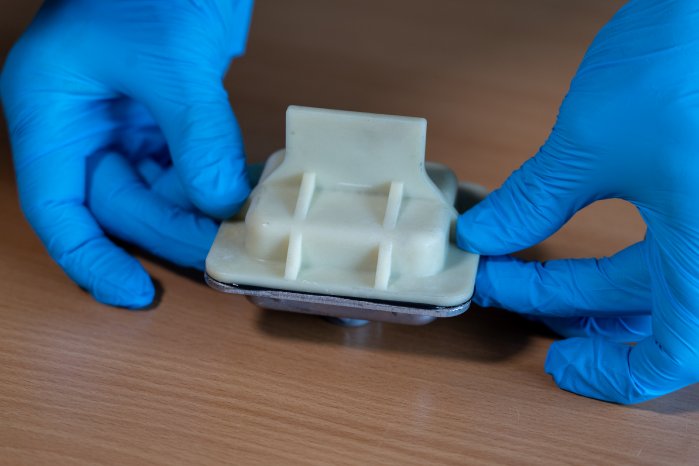The correct surface treatment of plastic parts and subsequent bonding processes of various joining parts are essential factors that must be taken into account in the production of components. They make a significant contribution to improving the quality, functionality and appearance of the end products and enable innovative design solutions and durable joints. However, these processes are often not considered from the outset as a downstream design process in product creation. It is advisable to take them into account at an early stage during product planning in order to avoid errors and thus save time and money.
Necessity of surface pre-treatment
The pre-treatment of plastic surfaces serves to increase adhesion in the initial state as well as during the service life when plastics are painted, printed or glued. Surface pre-treatment, including cleaning, is therefore essential to prevent coatings from peeling off or components from failing. The right pre-treatment can subsequently improve the free surface energy and therefore wetting and adhesion. The various processes must be selected according to the components, space conditions, throughput, investment and follow-up costs.
Special challenge
Compared to metals or glass, plastics have low-energy surfaces and therefore pose a particular challenge for bonding. The use of the right adhesive for a plastic component is of great importance, as not all adhesives are suitable for plastics and a wide range of requirements for a bonded product must also be taken into account. Effective surface preparation is a prerequisite for a strong bond. However, a defined adhesive application and proper handling of the bonded components must also be ensured during the bonding process. This requires equipped workstations, trained personnel and compliance with occupational health and safety measures.
Modular seminars on September 25 and 26 in Würzburg
In order to expand expertise in this area in companies in the plastics industry and related sectors, the SKZ has revised the theoretical courses "Surface treatments for plastics" and "Fundamentals of bonding technology". The modular seminars will take place in Würzburg on September 25 and 26, 2024. The training courses will focus on topics such as surface cleaning, surface analysis, plasma processes, thermal and blasting processes as well as thermal and mechanical processes - in the field of adhesive bonding technology, the program will include prerequisites, adhesive selection, structural design, testing and ageing of bonded joints, application of adhesives, standards and guidelines as well as occupational health and safety. The seminars can be booked independently or together. Course participants also have the opportunity to bring along sample components from their own production, which can be discussed with the experts.
Courses for people without a technical background
In addition, a course for design engineers on "Designing and laying out bonded joints for plastic components" will be offered next year. But non-technical personnel are also catered for. The compact course "Bonding for business people" is aimed at people without a technical background, for example in purchasing, incoming goods inspection or quality assurance, who are the link to technical employees. Courses with a practical component are also offered at the Halle site - including "Bonding practitioner according to DVS/EWF 3305", further training courses for bonding practitioners and bonding specialists, "Bonding of CFRP" and basic courses lasting several days with a practical component.
"We want to actively support companies in bonding in order to make them fit for future challenges," says Michael Heilig, Group Manager Bonding and Surface Technology at SKZ.
Learn more about adhesive bonding


